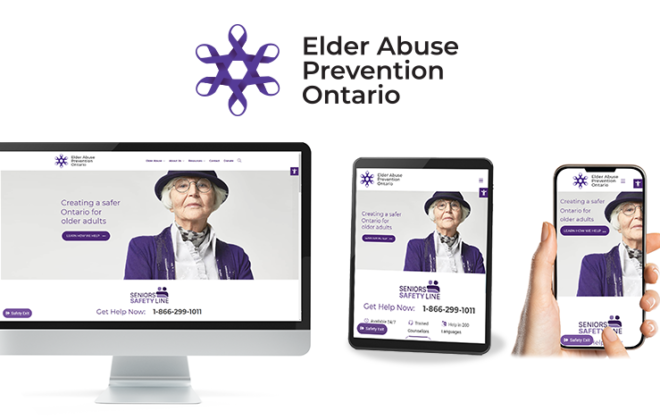Pink Shirt Day 2022: Bullying Awareness for Older Adults
Bullying is a global issue that affects everyone in schools, the workplace, at home, and even online. Older adults are also victims of bullying and often feel powerless when victimized.
Join Elder Abuse Prevention Ontario (EAPO) and the Canadian Network for the Prevention of Elder Abuse (CNPEA) on February 23 to raise awareness about this issue and to acknowledge Pink Shirt Day.
What is Pink Shirt Day?
In 2007, a group of teenagers in Nova Scotia organized a high school protest because a grade nine boy was bullied for wearing a pink shirt. As a response, David Shepherd, Travis Price, and other teenagers distributed pink shirts to all the boys in the school. The act of kindness on this day resulted in a global movement to stand up against bullying. While Pink Shirt Day originates from an act of kindness in Nova Scotia, the campaign has made its way to become celebrated worldwide.
Join EAPO on Pink Shirt Day
EAPO and CNPEA invite you to attend an informative webinar on Pink Shirt Day, that will highlight the results of the Senior Bullying Project, a collaboration with the Sheridan Centre for Elder Research and EAPO. The presenters will also provide an overview of our toolkit that provides best practices and strategies for preventing and responding to bullying between older adults and discuss how the toolkit is being adapted.
Register for our up-coming webinar: Bullying at Any Age is Not Okay
Seniors Experience Bullying Too
Bullying among older adults is a serious issue that continues to grow. Results from a survey to Ontario seniors on Senior Bullying yielded the following statistics:
- 57% of participants reported being bullied
- 56% reported having engaged in bullying behaviours
- 44% reported witnessing bullying within the last four months
Bullying behaviour between older adults is likely to occur in small groups composed of familiar members. In fact, 20% of older adults in assisted living facilities report having experienced some form of peer bullying. The most common form of bullying is verbal abuse. Victims may find it difficult to escape these situations because they live in the same facility as their bullies.
Bullying negatively affects older adults in many ways – for example, discomfort, self-devaluation, and cognitive decline. Learn more about the effects of bullying among seniors by viewing our infographic.
Do you want to learn more about strategies to prevent and respond to bullying among older adults?
Download our free toolkit by clicking here!





